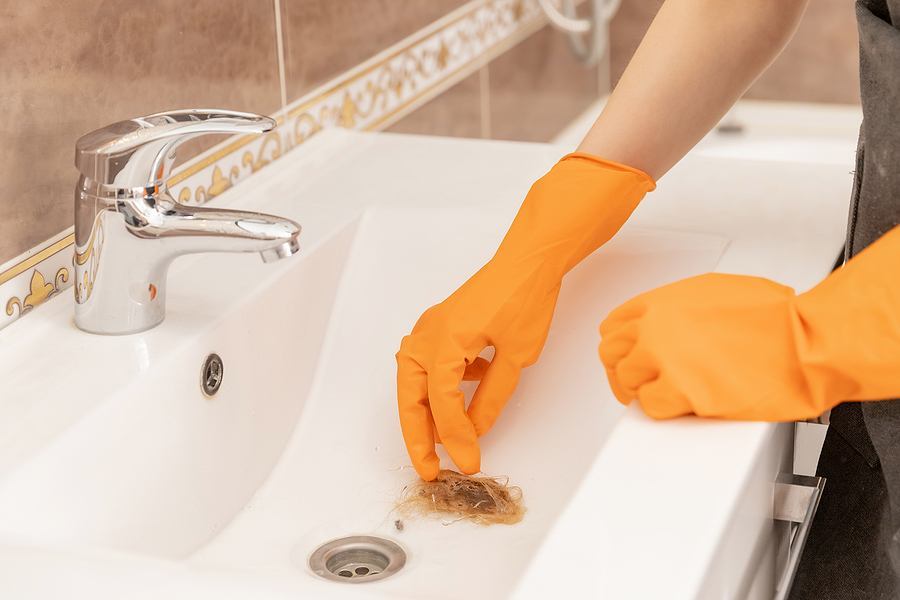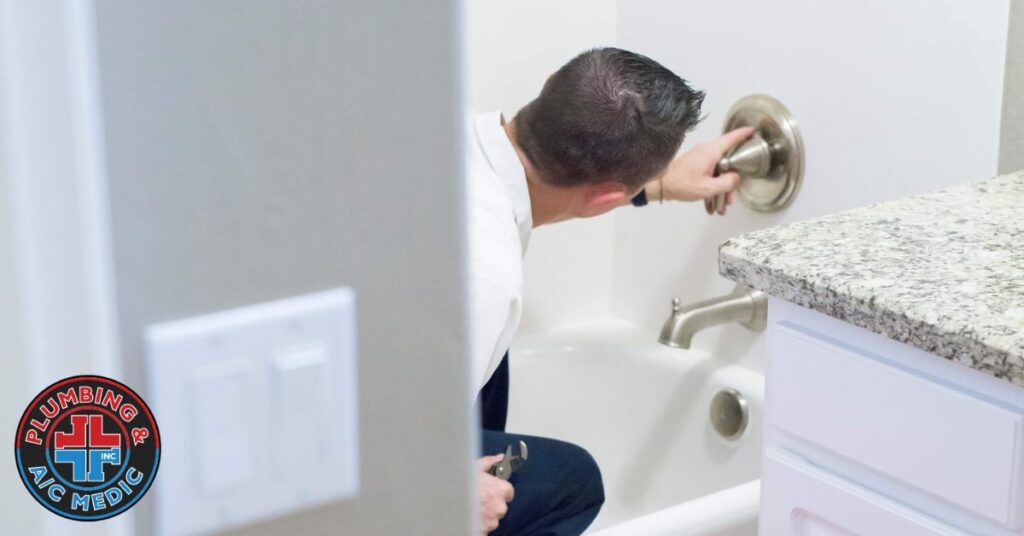A New Homeowner's Guide to Effective Bathroom Plumbing Management
A New Homeowner's Guide to Effective Bathroom Plumbing Management
Blog Article
Presented here down the page you will discover additional superb advice pertaining to 6 Essential Plumbing Checks for New Homeowners.

For brand-new property owners, understanding and keeping restroom pipes can conserve both time and money by preventing expensive problems down the line. Below are some crucial washroom pipes tips to aid you keep everything running efficiently.
Familiarize Yourself with the Main Shut-Off Shutoff
Understanding where the major water shut-off shutoff is located in your house is important. This permits you to promptly switch off the water in case of significant leaks or throughout pipes emergency situations, stopping comprehensive water damages.
Routinely Examine for Leaks
Small leakages can lead to big troubles. On a regular basis inspect under sinks, around toilets, and near pipes fixtures for any type of signs of leakages. Seek moisture, tiny drips, or corrosion. Catching and repairing leakages early can prevent much more serious damages and save water.
Don't Neglect Slow Drains Pipes
If your sink or bath tub is draining slowly, it's usually an indicator of a clog creating. Resolving this very early can protect against a complete clog. Utilize a bettor or a plumbing professional's snake to clear out debris. Prevent utilizing chemical drainpipe cleansers as they can damage your pipelines with time.
Know What Not to Flush
Bathrooms are not garbage disposals. Stay clear of purging anything apart from toilet tissue and human waste. Items like wipes, womanly health products, and cotton bud need to be thrown away in the trash to prevent obstructions and drain backups.
Set Up Strainers in Drains
Area strainers in your sink and tub drains to catch hair and various other debris before they enter your pipes system. Cleaning the strainers routinely will assist protect against buildup and keep water flowing easily.
Keep Your Hot Water Heater
Guarantee your water heater is set to an appropriate temperature (commonly around 120 degrees Fahrenheit) to prevent scalding and decrease energy use. Flush the storage tank each year to get rid of debris build-up, which can lower the efficiency and life expectancy of your heater.
Update Your Fixtures
If your home has older components, consider updating to much more reliable designs. Modern bathrooms, showerheads, and taps are created to make use of less water while offering good stress, which can significantly minimize your water bill and ecological footprint.
Beware with DIY Plumbing Services
While it's appealing to take care of all home repair services on your own, beware with plumbing. Some problems could need specialist experience, especially if they include major water lines or drain fixings. Working with a specialist can sometimes be much more economical than do it yourself, especially if it stops additional damages.
Get Ready For Winter
Secure your pipelines from cold during winter by shielding pipelines in unheated areas like basements, attics, and garages. Throughout extreme cold, let cold water drip from taps offered by subjected pipes to assist stop freezing.
Schedule Normal Maintenance
Consider scheduling yearly inspections with a licensed plumbing technician. They can detect issues that you might miss, such as covert leaks or wear and tear on pipes and fixtures. Regular upkeep helps extend the life of your plumbing system and can protect against emergencies.
Conclusion
Recognizing and preserving your home's restroom plumbing can protect against lots of usual issues. By following these essential tips, you can ensure your bathroom remains functional and reliable, saving you money and time over time.
Essential Plumbing Tips For Every Homeowner
As a homeowner, taking care of your plumbing system is crucial to maintaining the functionality and value of your home. While plumbing issues can be daunting, there are some essential tips that every homeowner should know to prevent major problems and save money in the long run. Here are some key plumbing tips that every homeowner should be aware of.
Regular Maintenance
One of the most important plumbing tips for homeowners is to schedule regular maintenance checks with a professional plumber. By having your pipes, fixtures, and appliances inspected regularly, you can catch any potential issues before they turn into costly repairs. A plumber can also provide valuable advice on how to properly maintain your plumbing system to prevent clogs, leaks, and other common problems.
Know Your Shut-Off Valves
It's essential for homeowners to know where the main shut-off valve is located in case of a plumbing emergency. This valve controls the flow of water into your home and can help prevent flooding in the event of a burst pipe or other serious issues. Additionally, it's important to know where the shut-off valves are for individual fixtures such as sinks, toilets, and washing machines so you can quickly stop the water supply if needed.
Watch What You Flush
Another important plumbing tip for homeowners is to be mindful of what gets flushed down the drains and toilets in your home. Avoid flushing items like paper towels, feminine hygiene products, grease, or hair as these can cause clogs and damage to your pipes. Installing drain filters or screens can help catch debris before it causes a blockage.
Insulate Pipes in Cold Weather
During winter months, it's crucial to insulate any exposed pipes in unheated areas of your home to prevent them from freezing and bursting. Frozen pipes can lead to extensive water damage and costly repairs. By adding insulation or heat tape to vulnerable pipes, you can protect them from extreme temperatures and avoid potential disasters.
Address Leaks Promptly
If you notice any signs of leaks such as damp spots on walls or ceilings, musty odors, or dripping faucets, it's important to address them promptly before they worsen. Even small leaks can lead to mold growth, water damage, and increased water bills over time. Ignoring leaks can result in more extensive repairs down the line.
Taking care of your home's plumbing system is an essential part of being a responsible homeowner. By following these key plumbing tips and staying proactive about maintenance and repairs, you can keep your plumbing system running smoothly and avoid costly issues in the future. Remember that prevention is key when it comes to plumbing problems – investing time and effort now can save you money and headaches later on. Stay informed about your home's plumbing system and don't hesitate to consult with a professional plumber if you have any concerns or questions.

Go Deal Now Report this page